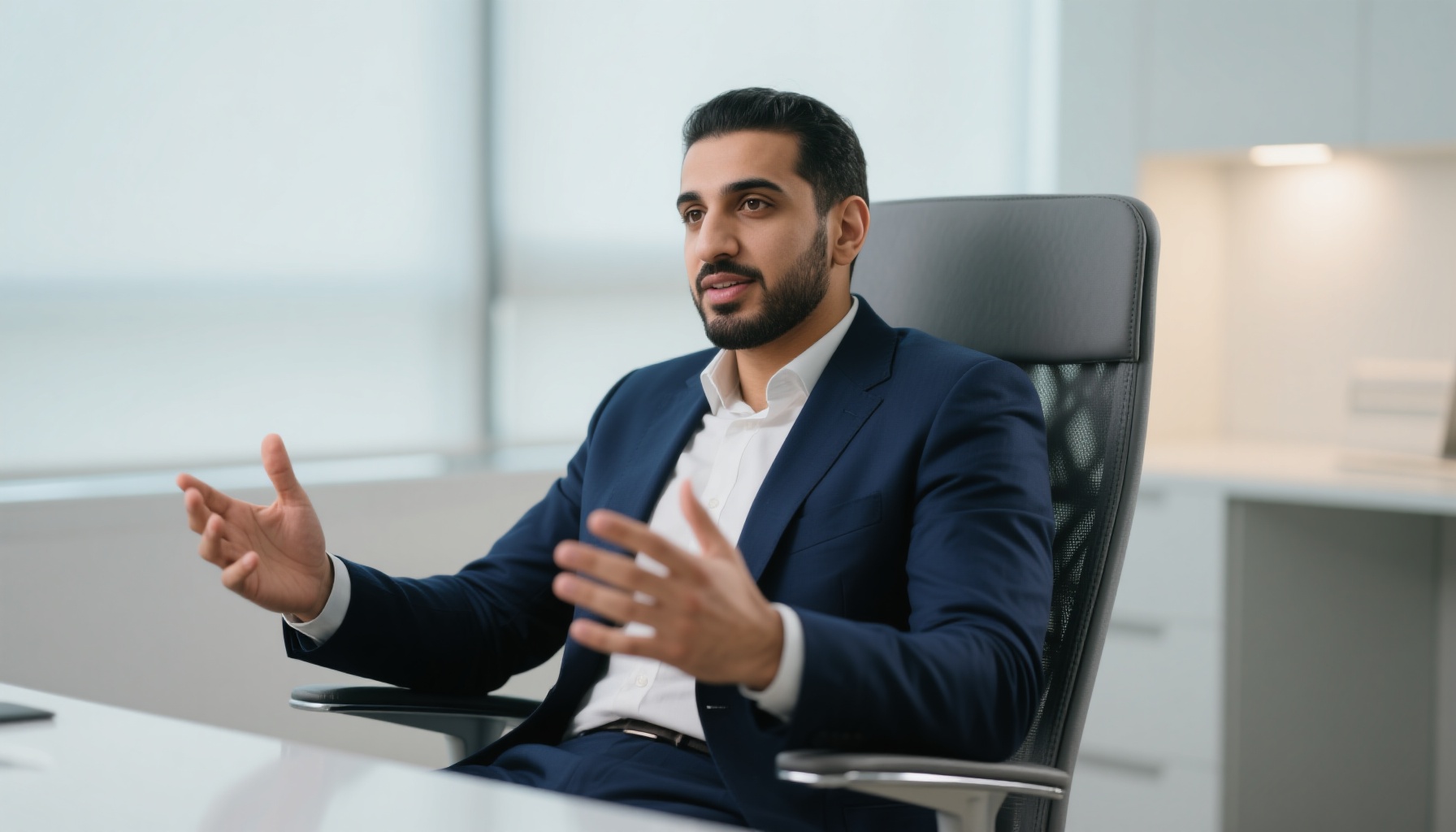The Ultimate Interview Guidance Playbook for 2025
Unlock true interview success with our comprehensive interview guidance playbook. Transform anxiety into confidence with a structured system for preparation and practice.

Job interviews don't have to be a source of dread. While it's natural to feel nervous about putting yourself out there, the difference between candidates who thrive and those who struggle isn't talent—it's having a systematic approach to preparation and practice.
The truth is, most interview advice focuses on what to say rather than how to build genuine confidence. Real interview success comes from developing a repeatable framework that helps you internalize your value and communicate it naturally, not from memorizing perfect answers that sound robotic.
Let's break down a comprehensive system that transforms interview preparation from overwhelming guesswork into a structured, confidence-building process.
Understanding the Modern Interview Landscape
Today's interviews have evolved far beyond the traditional question-and-answer format. Hiring managers are looking for authentic conversations that reveal how you think, solve problems, and fit within their team culture. This shift means your preparation strategy needs to focus on developing genuine responses rather than rehearsing scripts.
The most successful candidates understand that interviews are two-way conversations. You're not just being evaluated—you're also assessing whether this opportunity aligns with your goals and values. This mindset shift alone can significantly reduce anxiety and help you approach interviews with curiosity rather than fear.

The Foundation: Strategic Research and Preparation
Company and Role Deep-Dive
Before diving into practice questions, invest time in understanding the company's mission, recent developments, and industry challenges. This isn't about memorizing their website—it's about developing genuine insights that inform your responses.
Start with these key research areas:
- Company culture and values: Look beyond marketing materials to employee reviews and social media presence
- Recent news and developments: Understanding current challenges shows you're genuinely interested
- The role's impact: How does this position contribute to broader company goals?
- Your interviewer's background: LinkedIn research can provide conversation starters and context
Crafting Your Professional Narrative
Your career story should be a coherent narrative that connects your experiences to the role you're pursuing. This isn't about having a perfect linear path—it's about demonstrating how your unique journey has prepared you for this specific opportunity.
Develop three core stories that showcase:
- Problem-solving ability: A specific challenge you overcame
- Leadership or initiative: When you took ownership and drove results
- Learning and growth: How you've adapted and developed professionally
Mastering the Art of Behavioral Questions
Behavioral questions like "Tell me about a time when…" are designed to predict future performance based on past behavior. The STAR method (Situation, Task, Action, Result) provides a framework, but the key is making your responses feel natural and conversational.
The STAR Method, Refined
Situation: Set the scene briefly—provide just enough context without overwhelming details
Task: Clarify your specific responsibility or challenge
Action: Focus on what you personally did, emphasizing your thought process
Result: Quantify the outcome and, crucially, what you learned
The magic happens in the "Action" section. Don't just describe what you did—explain why you chose that approach. This reveals your decision-making process and professional judgment.

Handling the "Weakness" Question
The dreaded weakness question isn't a trap—it's an opportunity to demonstrate self-awareness and growth mindset. Avoid the classic "I'm a perfectionist" response. Instead, share a genuine area for development and, more importantly, the specific steps you're taking to improve.
Frame your response around:
- Acknowledgment: A real area where you're developing
- Action: Concrete steps you've taken to improve
- Progress: Evidence of growth or learning
The Practice Arena: Building Muscle Memory
Reading about interview techniques is like reading about swimming—the real learning happens when you practice. Most candidates practice by thinking through answers mentally or rehearsing in front of a mirror, but this doesn't replicate the pressure and dynamics of actual conversation.
Effective practice involves:
Speaking your answers out loud: Your brain processes spoken responses differently than mental rehearsal. You'll discover gaps in logic, awkward phrasing, and timing issues that silent practice misses.
Simulating real conditions: Practice in interview-appropriate clothing, sitting upright, and maintaining eye contact with an imaginary interviewer. These physical elements affect your confidence and delivery.
Getting objective feedback: The most valuable practice includes feedback on your pacing, clarity, and the strength of your examples. This is where tools like AceRound's AI interview platform become invaluable—providing instant, private feedback on your responses without the pressure of practicing with another person.
Iterating and refining: Great answers evolve through repetition. Each practice session should build on the previous one, refining your stories and improving your delivery.
Managing Interview Anxiety and Building Confidence
Interview anxiety often stems from feeling unprepared or focusing on what could go wrong. The antidote is thorough preparation combined with a growth mindset.
Reframing the Experience
Instead of viewing the interview as a test you might fail, approach it as a professional conversation where you're exploring mutual fit. This perspective shift reduces pressure and allows your personality to shine through.
Physical Preparation Techniques
Your physical state directly impacts your mental confidence:
- Power posing: Spend two minutes in a confident posture before the interview
- Breathing exercises: Deep, controlled breathing activates your parasympathetic nervous system
- Visualization: Mentally rehearse the interview going well, including walking in confidently and engaging naturally

The Day of the Interview: Execution Strategy
Arrival and First Impressions
Arrive 10-15 minutes early—enough time to settle in without appearing overeager. Use this time to observe the office culture and energy, which can inform your conversation style.
During the Interview
Listen actively: Pay attention not just to the questions but to the interviewer's communication style and energy. Mirror their professional tone while remaining authentic.
Ask thoughtful questions: Prepare questions that demonstrate your research and genuine interest in the role's challenges and opportunities.
Handle unexpected questions gracefully: If you encounter a question you haven't prepared for, take a moment to think. It's perfectly acceptable to say, "That's a great question, let me think about that for a moment."
The Follow-Up Framework
Your post-interview communication can differentiate you from other candidates. Send a thoughtful thank-you email within 24 hours that:
- References specific points from your conversation
- Reinforces your interest and qualifications
- Provides any additional information discussed
- Maintains the professional tone established during the interview
Putting It All Together: Your Implementation Plan
The strategies outlined here work when applied systematically. Start by conducting thorough research and crafting your core stories. Then, move into active practice—speaking your responses aloud and refining them based on feedback.
Remember, the goal isn't to become a perfect interviewing robot. It's to develop the confidence and skills to have authentic professional conversations that showcase your value.

Transform Your Interview Performance Today
Having a comprehensive playbook is just the beginning. The real transformation happens when you put these strategies into practice and build the muscle memory that creates genuine confidence.
True interview mastery comes from preparation, practice, and the ability to have authentic conversations about your professional value. You don't need to be perfect—you need to be prepared, genuine, and confident in your unique strengths.
Ready to put this guidance into action? Start building unshakable interview confidence with AceRound's free AI mock interviews. Practice these strategies in a pressure-free environment, receive instant feedback on your responses, and develop the confidence that leads to job offers. Your next great opportunity is waiting—and now you have the system to seize it.



